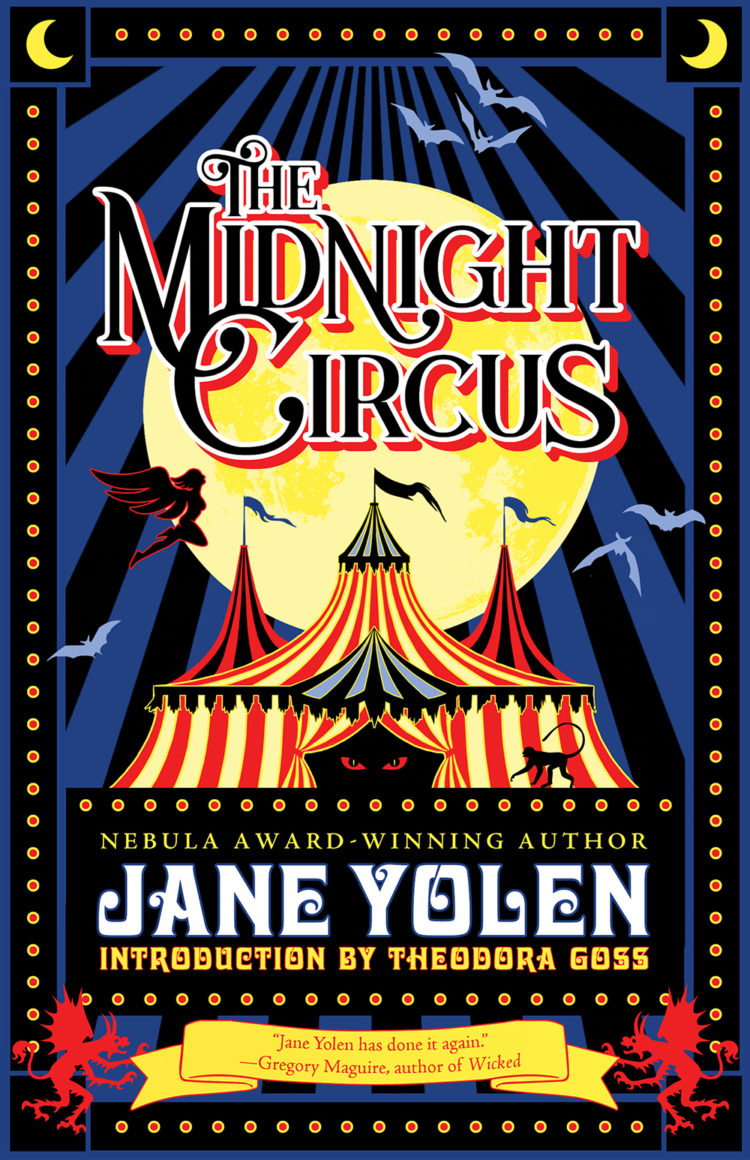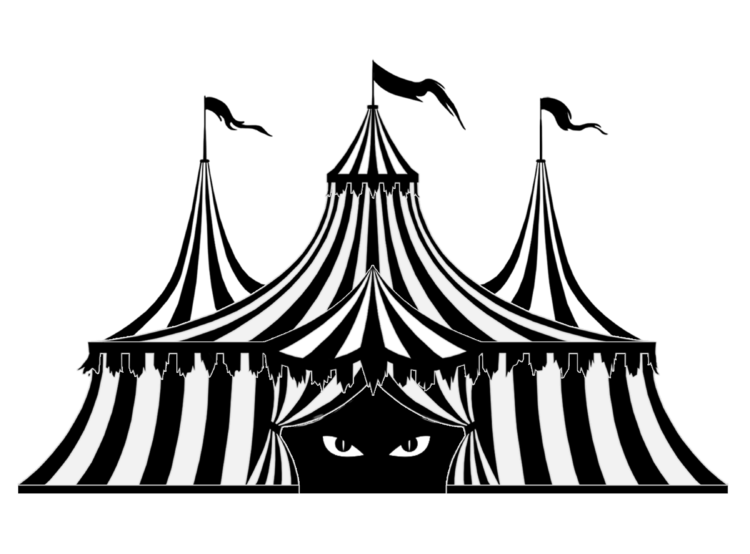THE MIDNIGHT CIRCUS by Jane Yolen preview: “The Snatchers”
In celebration of the release of THE MIDNIGHT CIRCUS by Jane Yolen, Tachyon presents glimpses from the book that “sings with magic, darkness, and wonder–perfect for anyone who has ever loved a fairy tale.” (Meagan Spooner, author of the Starbound Trilogy)

The Snatchers
by
Jane Yolen
You could say it all began in 1827 (though my part of it didn’t start until 1963) because that was the year Tsar Nicholas I decided to draft Jews into the army. Before that, of course, only Russian peasants and undesirables had to face the awful twenty-five-year service.
But it was more than just service to the state the Jewish boys were called to do. For them, being in the army meant either starvation—for they would not eat non-kosher food—or conversion. No wonder their parents said kaddish for them when they were taken.
After Tsar Nicholas’ edict, the army drafted sons of tax evaders and sons of Jews without passports. They picked up runaways and dissidents and cleaned the jails of Jews. Worst of all, they forced the kahal, the Jewish Community Council, to fill a quota of thirty boys for every one thousand Jews on the rolls—and those rolls contained the names of a lot of dead Jews as well as living. The Russian census takers were not very careful with their figures. It was the slaughter of the innocents all over again, and no messiah in sight.
The richest members of the community and the kahal got their own sons off, of course. Bribes were rampant, as were forgeries. Boys were reported on the census as much younger than they were, or they were given up for adoption to Jewish families without sons of their own, since single sons were never taken. And once in a while, a truly desperate mother would encourage her sons to mutilate themselves, for the army—like kosher butchers—did not accept damaged stock.
In my grandfather’s village was a family known popularly as Eight-Toes because that is how many each of the five sons had. They’d cut off their little toes to escape the draft.
So many boys were trying in so many ways to avoid conscription that a new and awful profession arose amongst the Jews—the khaper.He was a kidnapper, a bounty hunter, a Jew against Jews.
My Aunt Vera used to sing an old song, but I didn’t know what it meant until almost too late:
I had already washed and said the blessing
When the snatcher walked right in.
“Where are you going?” he asks me.
“To buy wheat, to buy corn.”
“Oh no,” he says, “you are on your way,
Trying to escape . . .”
One of my uncles remarked once that the family had come over to escape the khapers in the 1850s, and I thought he said ‘the coppers.’” For years I was sure the Yolens were but one step ahead of the police. Given my Uncle Louis’ reputation as a bootlegger, why should anyone have wondered at my mistake? But I learned about the khaper—thereal one—the year I was sixteen. And I understood, for the first time, why my family had left Ykaterinoslav without bothering to pack or say goodbye.

